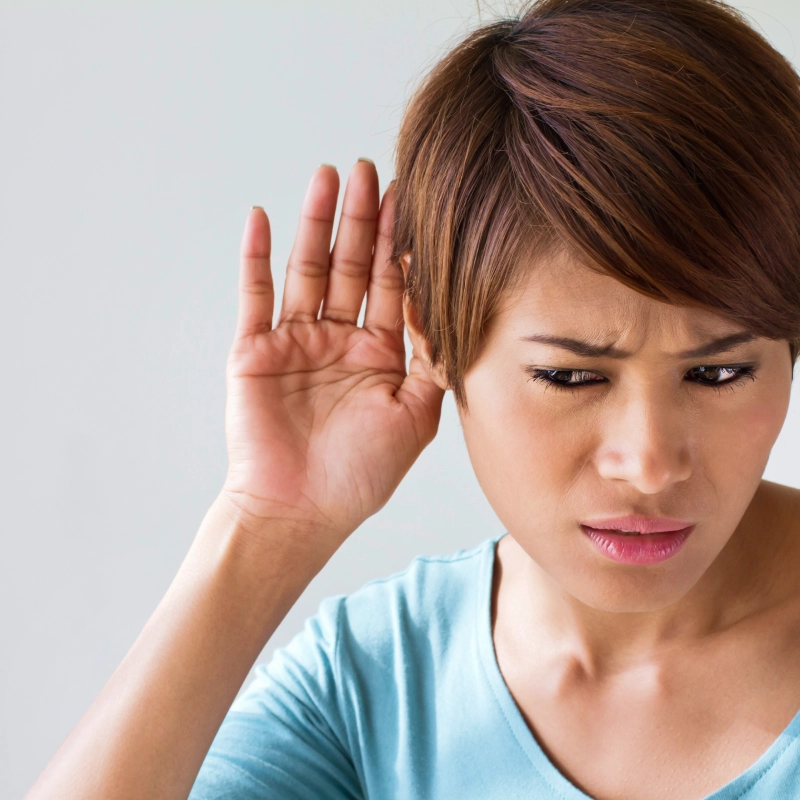
Sudden sensorineural hearing loss (SSNHL) is a condition where hearing loss occurs in one or both ears in a short period, usually within 72 hours. It can range from mild to profound and can be accompanied by tinnitus (ringing in the ears) and dizziness.
While the exact causes of sudden sensorineural hearing loss (SSNHL) are unknown, there are several potential factors that may contribute to it, including:
- Viral infections: Viruses, such as the mumps, measles, and influenza viruses, can attack the inner ear and cause hearing loss.
- Inner ear injuries: Head trauma, exposure to loud noises, and certain medications can damage the delicate structures in the inner ear, leading to SSHNL.
- Meniere's disease: This inner ear disorder is characterized by episodes of vertigo, tinnitus, and hearing loss. It is thought to be caused by a buildup of fluid in the inner ear.
- Autoimmune disorders: Conditions such as lupus and rheumatoid arthritis can affect the inner ear and cause hearing loss.
- Vascular problems: Problems with blood circulation to the inner ear can cause SSHNL.
- Genetic factors: Some people may be genetically predisposed to SSHNL.
Symptoms of SSHNL
The main symptom of SSHNL is sudden hearing loss in one or both ears. Other symptoms may include:
- Tinnitus
- Dizziness
- Ear fullness
- Difficulty understanding speech
- Feeling off balance
Diagnosis of SSHNL
If you experience any of the symptoms of SSHNL, it is important to see a doctor or audiologist as soon as possible. Early diagnosis and treatment are crucial for improving the chances of regaining lost hearing.
The doctor will perform a physical exam and ask questions about your medical history and symptoms. They may also order tests, such as:
- Audiometry: This test measures your hearing ability.
- Tympanometry: This test measures the movement of the eardrum.
- Electrocochleography (ECoG): This test measures the electrical activity of the inner ear.
- Magnetic resonance imaging (MRI): This test can rule out other causes of hearing loss, such as tumors.
Treatment of SSHNL
There is no cure for SSHNL, but there are treatments that may help improve hearing. The most common treatment is oral corticosteroids, which can reduce inflammation in the inner ear. Other sensorineural hearing loss treatments include:
- Hyperbaric oxygen therapy: This treatment involves breathing pure oxygen in a pressurized chamber.
- Antiviral medications: If the hearing loss is caused by a viral infection, antiviral medications may be prescribed.
- Cochlear implants: If other treatments are not successful, a cochlear implant may be an option.
Prognosis of SSHNL
The prognosis for SSHNL varies depending on the severity of the hearing loss and the underlying cause. Some people may regain some or all of their hearing, while others may experience permanent hearing loss.
Here are some tips for coping with SSHNL:
- See a hearing specialist: A hearing specialist can help you choose the best hearing aids or other assistive devices for your needs.
- Join a support group: Connecting with other people who have SSHNL can provide emotional support and advice.
- Learn to lipread: Lipreading can help you understand speech better in noisy environments.
- Take breaks from noise: Avoid loud noises and give your ears time to rest.
- Manage stress: Stress can worsen the symptoms of SSHNL. Find healthy ways to manage stress, such as exercise, relaxation techniques, or spending time in nature.
Prevention of SSNHL
There is no guaranteed way to prevent SSNHL, but there are some things you can do to reduce your risk of developing the condition, including:
- Avoiding exposure to loud noise: If you are exposed to loud noise, wear ear protection, such as earplugs or earmuffs.
- Getting vaccinated against the flu: The flu virus is a common cause of SSNHL. Getting vaccinated against the flu can help to protect you from the virus.
- Taking care of your health: Eating a healthy diet, exercising regularly, and getting enough sleep can help to boost your immune system and reduce your risk of developing infections.
Conclusion
Sudden sensorineural hearing loss can be a devastating condition, but it is important to remember that there is help available. With early diagnosis and treatment, many people with SSHNL can regain some or all of their hearing. If you experience any of the symptoms of SSHNL, don't hesitate to seek medical attention. Institutions like Sakra World Hospital specialize in addressing conditions like sudden sensorineural hearing loss, providing expert diagnosis and advanced treatments. By reaching out to healthcare professionals at Sakra World Hospital, you can receive the care and support needed to navigate and potentially overcome this challenging condition.

